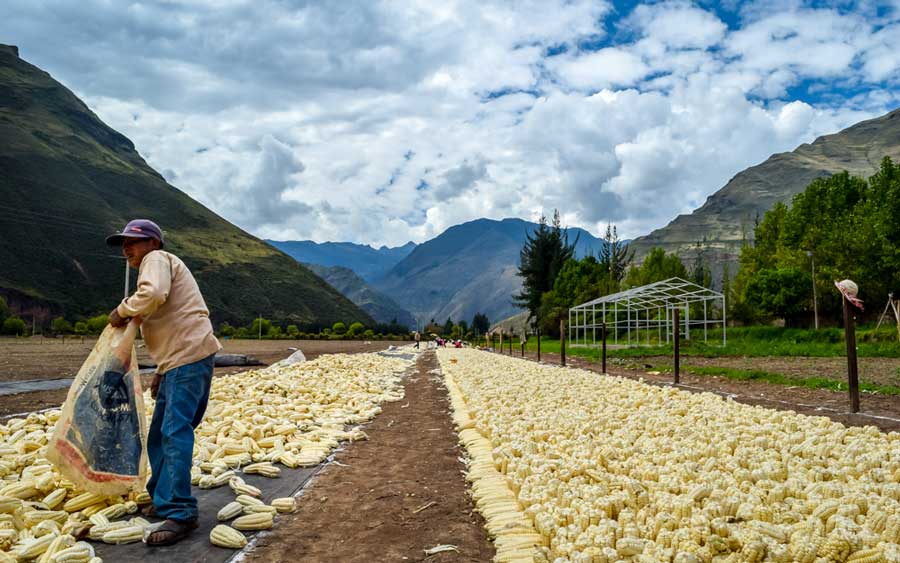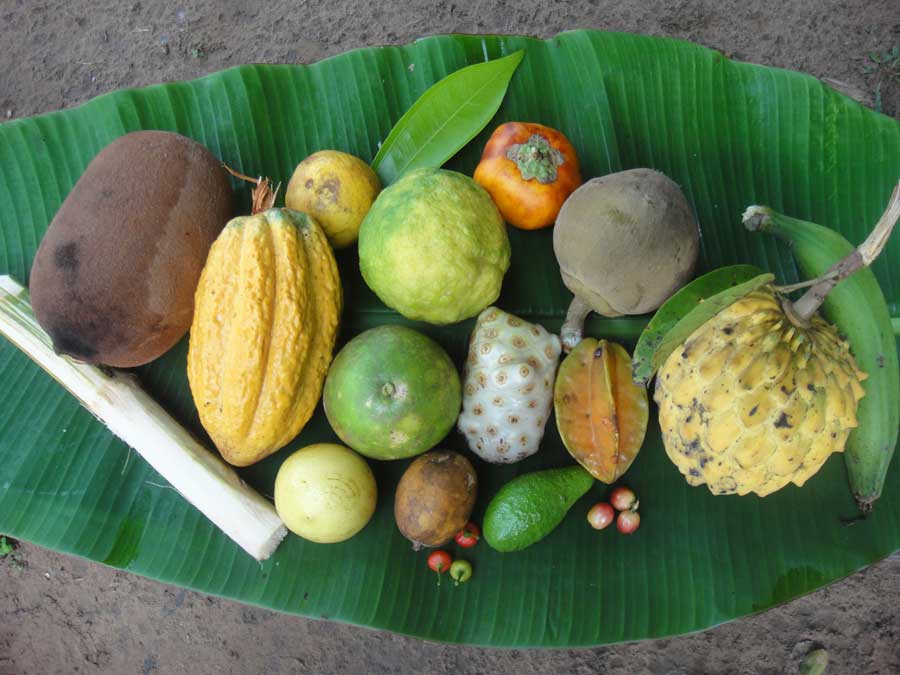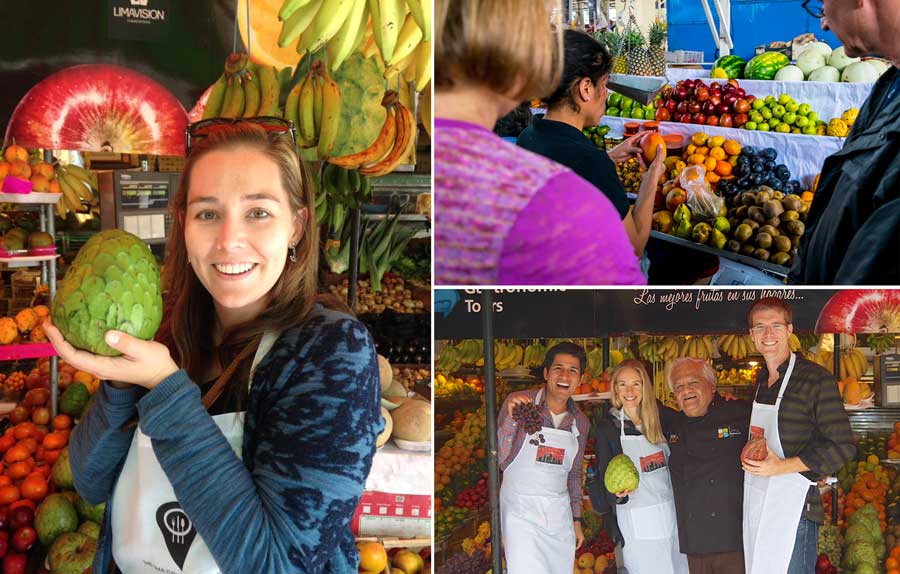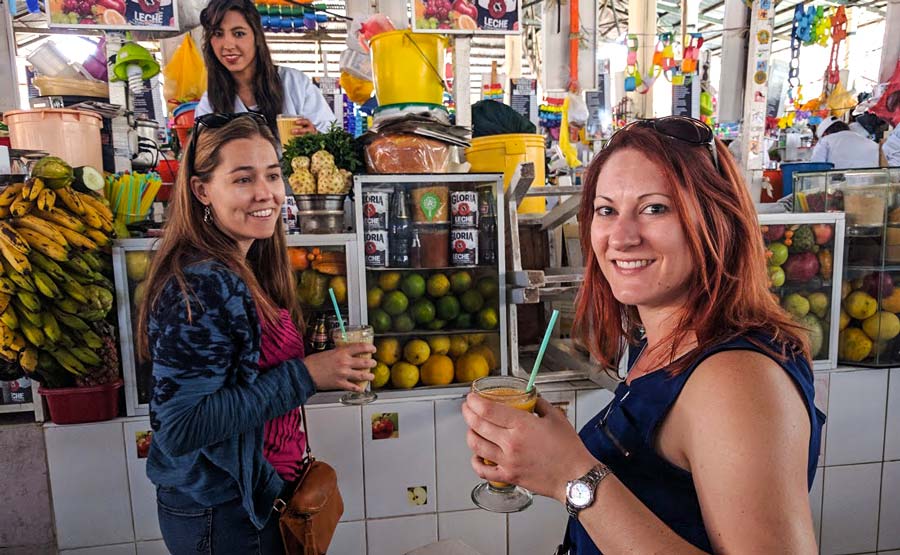Perhaps another perk to Peru travel is the ten-year ban on GMO crops and foods. Beginning in 2012, the ban was put into effect to prohibit the import, production and use of genetically modified organisms in Peru. The law provides for a fine in the millions of nuevos soles (Peru’s national currency) and the seizure and destruction of the genetically modified product. The law’s purpose is to protect Peru’s famed biodiversity and to support local farmers, who are often growing crops from heirloom seeds and using agricultural methods that rely on diversity to grow crops. Thanks to this ban, you’ll have the chance to see this incredible diversity of Peruvian food products in the markets and on your plate throughout your private tour of Peru.
A Background in GMO’s and Peru

Peru’s Famous Giant White Corn in a local farm estate in the Sacred Valley
Many of us are already familiar with the controversy regarding GMO’s, or genetically modified organisms. For those who are not, a GMO is an organism whose DNA is altered to contain one or more genes not normally found there. Most often, the genome is altered to increase production, resistance to diseases or pests, or nutritional value of the resulting edible vegetable or fruit.
However, when a GMO organism, such as Monsanto’s BT corn seed, is introduced into a country with as many heirloom varieties of seed as Peru, the result can be the loss of the original variety as the GMO organism will cross-pollinate with the first organism, resulting in a vegetable that no longer retains the hardiness, nor the reproductive characteristics, of the native variety. If GMO organisms were to be permitted in Peru, for example, the giant heirloom corn variety, known as Yuracklallhua, the Giant Cusco corn*, could quickly be eliminated as it crossed with GMO corn.
*Ask your Kuoda Travel Designer about including a visit to Hacienda Sarapampa to learn about Giant White Corn, an important product of the local Sacred Valley economy.
Protecting Peru’s Biodiversity from the Unknown Risks of GMO’s

A wide selection of exotic fruits from a local Rainforest farm
Alejandro Argumedo of the ANDES Association in Cusco notes that Peru is one of the world’s ten most bio-diverse nations, and as such, it needs to be protected from organisms that could get into the seed pool and alter that fact. He says that rather than looking to GMO organisms to solve problems of diseases and pests, Peruvian farmers should use other techniques, such as growing a diversity of crops. He notes that, “Once there is contamination, there is no going back.”
Antonietta Gutierrez, a biologist at the National Agrarian University, states that the law is not “against anything. It’s a law in favor of biosecurity. The idea is that there should be a responsible way of using technology, so that it helps us develop resources and at the same time, doesn’t destroy what we already have.”
Peruvian scientists have agreed that the safety of GMO organisms is still unknown and that studies to determine the risks of growing and consuming these crops are still in their early stages. They hope that there will be advances in understanding before the end of the ten-year moratorium that will help Peru determine how to go forward. Peru is the first country in the Americas to ban the import and production of genetically modified foods.
Experience Peru’s Biodiversity on Your Peru Holiday

Enjoy natural fruit from one of Peru’s vibrant local markets
For now, Cusco Giant Corn, purple potatoes, and other crops that have a lineage dating back thousands of years can still be found at the many outdoor markets in and around Cusco and other regions of the amazingly bio-diverse country of Peru. See Peru’s incredible biodiversity for yourself on a customized Peru vacation with Kuoda Travel.
Contact a Kuoda Travel Designer today to start planning.






Leave a Comment